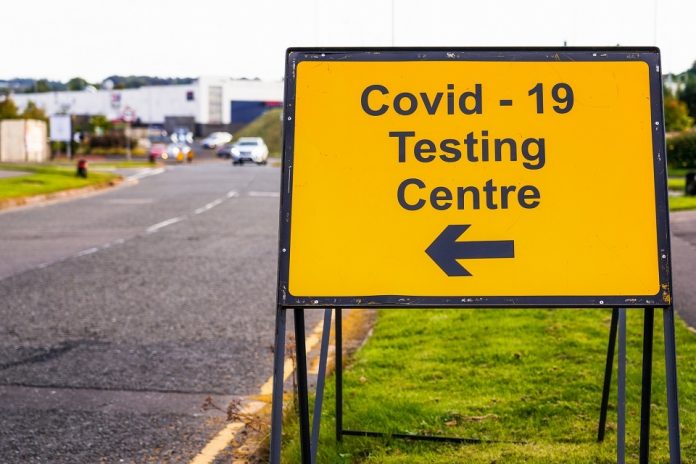- This will support existing extensive testing already in place, and monitor and suppress the spread of the variant
- Postcodes affected are London (W7, N17, CR4), West Midlands (WS2), East of England (EN10), South East (ME15, GU21), North West (PR9)
- Positive cases will be sequenced for genomic data to help understand COVID-19 variants
Additional surge testing and sequencing is being deployed in a number of locations where the COVID-19 variant first identified in South Africa has been found. Testing will, in combination with following the lockdown rules and remembering ‘Hands. Face. Space’ help to monitor and suppress the spread of the virus, while enabling a better understanding of the new variant.
Extensive surveillance of the virus has identified a small number of cases of the COVID-19 variant first identified in South Africa in localities across England, that cannot be traced back to international travel. All cases are now self-isolating and robust contact tracing has taken place to trace their contacts and ask them to self-isolate.
Working in partnership with local authorities, enhanced testing and sequencing will be targeted within specific postcode areas. These postcodes are:
- East of England (EN10)
- London (W7, N17, CR4)
- North West (PR9)
- South East (ME15, GU21)
- West Midlands (WS2)
Every person over 16 living in these locations is strongly encouraged to take a COVID test this week, whether they are showing symptoms or not. Mobile testing units (MTUs) will be deployed offering PCR testing to people without symptoms who have to leave their home for work or essential reasons, with local authorities encouraging people to get tested in the area by providing additional home test kits.
People with symptoms should book a test in the usual way and people without symptoms should visit their local authority website for more information. This additional testing will begin in these areas from Monday.
Positive tests will be sequenced to identify any further spread of the COVID-19 variant first identified in South Africa, enabling a better understanding of the variant and identifying if there are any more cases of this particular strand of the virus in the area.
In total, Public Health England has identified 105 cases of the COVID-19 variant first identified in South Africa since 22 December. All cases and their contacts have been contacted and told to self-isolate. There is currently no evidence to suggest this variant is more serious than others, or that the regulated vaccine would not protect against it.
Health and Social Care Secretary Matt Hancock said:
It is vital that we do all we can to stop transmission of this variant and I strongly urge everyone in these areas to get tested, whether you have symptoms or not. The best way to stop the spread of the virus – including new variants – is to stay at home and follow the restrictions in place. Until more people are vaccinated this is the only way we will control the spread of the virus.
The UK is a global leader in COVID-19 genomics, and because of this, we have been able to identify new strains of the virus and take decisive action. We continue to closely monitor new variants, here and around the world, and in addition to our already extensive testing service, we are making surge testing capacity available to affected areas.
Dr Susan Hopkins, Strategic Response Director to Public Health England and Chief Medical Adviser for NHS Test and Trace, said:
As part of our proactive sequencing work, we know that the new variant of COVID-19, first detected in South Africa, has been identified in a number of areas across England. A small proportion of these cases have no link to international travel suggesting that there are some cases in the community.
In response to this, we are ramping up testing in targeted areas, so we can gather more information and effectively monitor any further community transmission.
As set out earlier this week, action is being taken to reduce the risk from the new variants of the virus by introducing further measures at the border.
Travel bans were already in place for countries where there is a risk of known variants. Further measures will include managed isolation in hotels for those who cannot be refused entry arriving from countries with international travel bans. Those wishing to travel out of the UK will have to declare their reason for travel in a pre-departure form. People should expect this to be checked and anyone who does not have a valid reason will be directed to return home and may face a fine.
All measures are kept under constant review.
Background information
Working in partnership with local authorities we are targeting specific postcode areas where the variant has been found. These postcodes are:
- East of England (EN10)
- London (W7, N17, CR4)
- North West (PR9)
- South East (ME15, GU21)
- West Midlands (WS2)
People with symptoms should book a test in the usual way. People without symptoms should visit their local authority website for more information.
People should continue to follow the lockdown rules and remember ‘Hands. Face. Space’.
We know that mutations form a part of the virus cycle and we are well prepared to sequence new variants and assess what action may need to be taken.
If a person tests positive, has any symptoms, or are contact traced following contact with someone who tests positive, they should self-isolate immediately.







